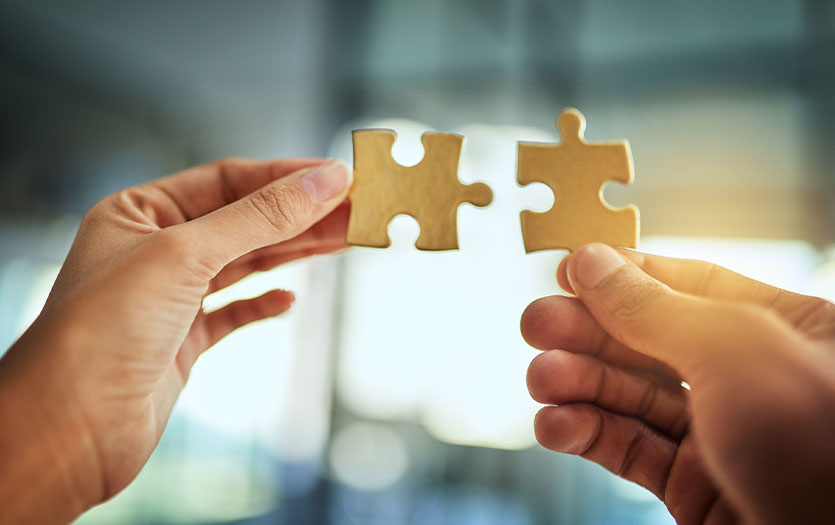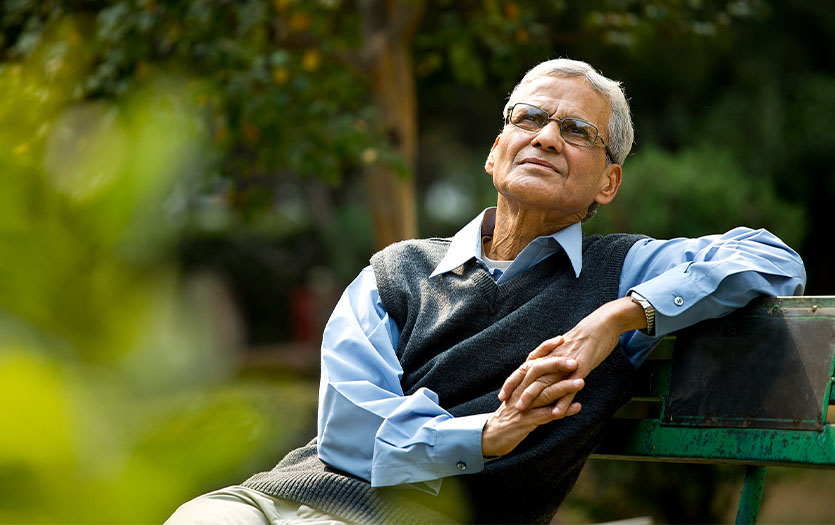
Enjoy this monthly mindfulness post from Dave Johnson, PhD, CNS-BC, LMFT, Employee Assistance Specialist.
“A moment of patience, in a moment of anger,
can help us avoid a thousand moments of sorrow.”
- Imam Ali (A.S.)
Years ago, I met a parent who had abused her child. The single mom who worked two jobs, had three children, and minimal outside support. She often felt exhausted, and was exasperated by the role of parenting young kids and the number of demands she had to meet in her life. One evening, she spanked her child so hard, a neighbor called Child Protective Serves (CPS). The court mandated she receive counseling. When I looked into her eyes, she cried. She was confused and filled with feelings of shame, guilt and remorse. She loved her children and was bewildered by her actions.
In addition to building some wraparound support systems for this young mother, I used another framework, called Emotional Intelligence (EI). EI is a model to facilitate resiliency. It’s defined in many ways, but ultimately, it’s linked with a person’s ability to recognize their own personal emotions, as well as the emotions of others, and use this emotional information to guide thinking and behavior. The framework gained popularity after author and science journalist Daniel Goleman, among others, did extensive research and writing on the model. Mindfulness links with the EI framework by providing a mechanism to grow the ability to pause from reacting from strong emotions like fear, anxiety or anger, and to be a bit more intentional with one’s responses or coping patterns.
As a nurse, family therapist and leadership consultant, I have looked into the eyes of many folks and listened to their stories of “losing control”. Often, these individuals are haunted or confused by their strong emotional responses. They regret sending the email, pulling the trigger or blurting out those irreversible words that caused devastating harm to their family, workplace or community. Grief, sorrow, confusion and often a change in life plans for themself and others, occurs where a moment of patience or pause may have averted a death, divorce, abuse, loss of trust or job, or major (or minor) life casualties.
When I was young, I remember adults calling children or other adults “hot heads” when they were unable to “control” their emotional responses. My mother was my first mindfulness teacher, when she taught me to take a slow, deep breath and count to ten. She told me that this would help me to avoid doing or saying something that I would later regret. Perhaps Mom knew what I needed most, and I would grow up to help others with the practice of mindfulness.

But telling folks to control their temper is like telling an obese person to watch their intake of candy or start a fitness program without first arming them with the details and strategy to motivate them to follow through with the behavioral change. It’s not enough to know what one should do. The practice of EI requires a regular “workout”, formally and informally. Our world has largely embraced the essence of mindfulness and welcomed the practice into their homes, corporate American, prison systems, health systems, school programming, and more. This gives me hope for a world where people know to pause before pushing buttons, dismissing resolution or invoking pain, emotional or physical. We live in a microwave culture, where speed is desirable and our ability to share information globally is powerful for peace and for destruction. Mindfulness as a means to foster EI is essential for everyone.
And so, I ponder a few ideas for cultivating some foundations to build attitude and commitment for mindful practice:
- Look at a mindfulness practice as a process of learning. People often tell me that their mind wanders when they attempt to do a sitting meditation and they feel fidgety. They don’t think it works for them. I remind them that we sweat, get breathless and often feel uncomfortable when we first start a fitness program. Fitness requires a commitment as does mindfulness meditation. Of course the mind wanders! Every time it wanders it’s an opportunity to gently strengthen the mindful muscle of awareness to come back to an anchor such as the breath, a calming word or prayer. Mindful practice provides an opportunity to learn emotional regulation.
- Cultivate other attitudes such as non-judging. I am a judgmental person. I know, I know, it’s hard to believe. I often get annoyed at others who do not see a situation my way. I am constantly surprised at noticing how quickly I can dismiss others’ opinions because of what I like or dislike, believe or don’t believe, perceive as good or bad. In mindfulness practice, I get to notice my judgmental brain pattern as well. When I hear the attitude, I can take note of it and then remind myself that I am just watching what comes up and go back to riding the waves of my breathing pattern. Coming into this attitude translates into active listening or the ability to play the observer in high emotion environments, such debating friends or family, or therapy sessions between conflicted individuals.
- Practice patience. Sitting and meditating daily provides me with an opportunity to practice the wisdom of patience. The metaphor of the butterfly breaking from the chrysalis reminds me that often I don’t know what I don’t know, and rushing to change or feeling frustrated by the lack of change perhaps is an emotional reactivity versus a strengthening of a system facilitated through a painful transformation. I know from being a parent and grandparent that watching others walk through the fires of life transformation is painful, but having a sense of inner wisdom that all will be well gives a quiet calm. Sitting and meditating when my head is saying, “You’ve got work to do Dave,” facilitates my practice of patience. Yes, it does.
- Beginner’s eyes. My son spent a semester in Hong Kong. And I remember him telling me how quickly the beauty of the mountains and ocean faded during his time there. Initially, everything was new, beautiful and breathtaking, but then, over a few short months, not so much. The landscape of life had simply faded into the fabric of day-to-day life. Mindfulness practice helps one to cultivate the ability to see the extraordinary in the ordinary. The simple monotony of sitting on my same mat each morning grows the agility to notice the beautiful eyes of my wife, children, grandkids and a world of stars, trees, birds, moons, rocks and gardens. Am I looking through an uncluttered clean lens to view a world in real time? Or through a veiled reality based on memory, strong emotions, thoughts or opinions? Bring mindfulness into your home.
- Other foundations. Goodness, kindness, gentleness, generosity, gratitude, empathy, joy forgiveness, compassion, love, trust, non-harming and other attitudinal virtues and qualities, can be a focus that starts on the morning or afternoon mindful meditation mat and built with intention and attention throughout our day. Bringing an awareness of the importance of these virtues when we are in a safe, calm space each day has the potential to impact the space of our lives that might be filled with chaos, harm, fear, rush, etc., where an impulse toward a reactive mode is more likely. A commitment to regular practice may require wraparound approach, such as a conference, retreat, smart phone app, 1:1 consultation, book or other resources.
Other resources
For a free 1:1 in person or phone consultation with Dr. Dave or to find out about more on Mindfulness & Stress Management programs, contact the Parkview Center for Healthy Living at (260) 672-6500. Dr. Dave also provides on-site guidance for teambuilding and transformational leadership, among other topics. To learn more about Employee Assistance Programs for your company, call Business Development at (260) 373-9013. Mindfulness-based stress reduction (MBSR) practice has been extensively researched and proven helpful for coping with stress and change, grief, healthy eating patterns, pain, anxiety, depression and many other chronic disease and autoimmune disorders.
Follow Integrate Mindfulness on Facebook, for mindfulness and healing exercises from Dr. Dave.
Daniel Goleman’s work on EI and compassion, including his book, “Emotional Intelligence”. work on EI and Compassion:



